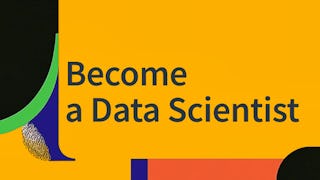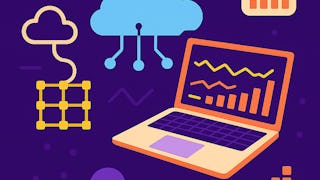![[Featured Image] Two business professionals are reading graphs on a computer available through a big data visualization tool.](https://images.ctfassets.net/wp1lcwdav1p1/2NNmpRI1Mj0AjvePKBIDqB/26b33cd61f5401c2b1f63f639d5a8606/GettyImages-1751834130.jpg?w=330&h=216&q=60&fit=fill&f=faces&fm=jpg&fl=progressive)
Big Data Visualization Tools: Types, Benefits, and How to Choose
Discover types of big data visualization tools, including stand-alone tools, open-source libraries, and cloud-based platforms, and learn how to use software and programs to translate complex information so it's easily understandable.
March 11, 2025
Article

![[Video Thumbnail] 7 Must-Have Data Science Skills](https://images.ctfassets.net/wp1lcwdav1p1/3MXKE8i5HXRDkxO6oKI3PT/2b9d9ca3c9c51c385b780e7aa7955909/7_Must-Have__Data_Science_Skills.jpg?w=330&h=216&q=60&fit=fill&f=faces&fm=jpg&fl=progressive)
![[Featured Image] A data visualization engineer presents graphic data to a team of colleagues.](https://images.ctfassets.net/wp1lcwdav1p1/3rFIpxmRWo7HkNofpvre7O/f71ec775784280d67b39f86a4ec0d75e/GettyImages-1452684881.jpg?w=330&h=216&q=60&fit=fill&f=faces&fm=jpg&fl=progressive)
![[Featured Image] A data architect works at a computer, designing data management solutions.](https://images.ctfassets.net/wp1lcwdav1p1/14E6NoEcJe2FnntN9TgVwS/24df666d0366f32c6810fe6ea19f2e39/GettyImages-1435259326.jpg?w=330&h=216&q=60&fit=fill&f=faces&fm=jpg&fl=progressive)
![[Video thumbnail] How to Pivot Industries as a Data Scientist](https://images.ctfassets.net/wp1lcwdav1p1/47isV2iSkNm5DXMNOHciSR/a5085777b8f5ec4fd8a379cad6898895/how-to-pivot-as-a-data-scientist-v4.jpg?w=330&h=216&q=60&fit=fill&f=faces&fm=jpg&fl=progressive)
![[Video thumbnail] Data Science Career Path](https://images.ctfassets.net/wp1lcwdav1p1/4PdzQ8VExZG8oFJD7TbCeZ/7c62c8c1c619ee4955a3841e96e7c79a/-CAREER-_Career_Path_-_Cybersecurity__1_.png?w=330&h=216&q=60&fit=fill&f=faces&fm=jpg&fl=progressive)



![[Featured Image] A business person sits at an office desk using two computer screens as they import XML to Google Sheets.](https://images.ctfassets.net/wp1lcwdav1p1/2npBSSVt0avdmyEu2SCBaE/8cbfdbe0d904c5f51330dc24267f4e32/GettyImages-2033298518.jpg?w=330&h=216&q=60&fit=fill&f=faces&fm=jpg&fl=progressive)
![[Featured image] Two engineers looking at a small screen and discussing learning rates to train a deep learning model.](https://images.ctfassets.net/wp1lcwdav1p1/6XFsegjk4hp6HkpdqnGiqU/9887e4a82e261cd1b9d9b1018e344768/GettyImages-2099345768.jpg?w=330&h=216&q=60&fit=fill&f=faces&fm=jpg&fl=progressive)
![[Feature Image] A professional in dark-rimmed glasses smiles while looking at a paper instructing them how to sync Google Sheets with Google Calendar.](https://images.ctfassets.net/wp1lcwdav1p1/6mPkDs3ZZP9lOm5yhSXpta/f977ddf21421b71f17ac9a298e585dd6/GettyImages-2166223621.jpg?w=330&h=216&q=60&fit=fill&f=faces&fm=jpg&fl=progressive)
![[Featured Image] A person sits in their sunny home office and uses sparklines in Google Sheets on their laptop and a second device.](https://images.ctfassets.net/wp1lcwdav1p1/4muGX86i1fpXWUMENzopKl/ead7232b9f8f34db4e6203cc7ab8974b/GettyImages-2044589215.jpg?w=330&h=216&q=60&fit=fill&f=faces&fm=jpg&fl=progressive)
![[Featured Image] A data analyst studies data organized by the REGEXMATCH function in Google Sheets while working on their computer in a well-lit office.](https://images.ctfassets.net/wp1lcwdav1p1/65NQ9Dfum5j3sRXn4T6xEW/6289e3c97cb5267beca2fe6ce602d353/GettyImages-1826451630.jpg?w=330&h=216&q=60&fit=fill&f=faces&fm=jpg&fl=progressive)
![[Featured Image] Two machine learning engineers discuss the differences between natural language processing (NLP) and machine learning (ML).](https://images.ctfassets.net/wp1lcwdav1p1/3Qnao1F1k4hjv9b9WV4X9/a54b84ab35c5518b03de0ba332293cc1/GettyImages-2099345768.jpg?w=330&h=216&q=60&fit=fill&f=faces&fm=jpg&fl=progressive)
![[Video thumbnail] Career Spotlight BI Analyst](https://images.ctfassets.net/wp1lcwdav1p1/69ofhiiRfGrZ0o5nLB3caP/72945e715b7e4935678bd76b764ad79e/Career_Spotlight__-CAREER-_-_Project_Management_-_Image_BG__8___3_.png?w=330&h=216&q=60&fit=fill&f=faces&fm=jpg&fl=progressive)
![[Featured image]: A person sitting at a desk uses a laptop and monitor to create dynamic charts in Google Sheets.](https://images.ctfassets.net/wp1lcwdav1p1/4hhwReAX8FXStKOlyIdw97/c1d88de629592056ebdd4571104838fe/GettyImages-1397487250.jpg?w=330&h=216&q=60&fit=fill&f=faces&fm=jpg&fl=progressive)
![[Featured Image] A business person in an office with large glass walls uses Google Sheets automation on their computer.](https://images.ctfassets.net/wp1lcwdav1p1/3nIigkDRHQmpO9Yi7NGOhZ/8fbf032e6e682278e87074bbe1ff0cfe/GettyImages-1335397197.jpg?w=330&h=216&q=60&fit=fill&f=faces&fm=jpg&fl=progressive)
